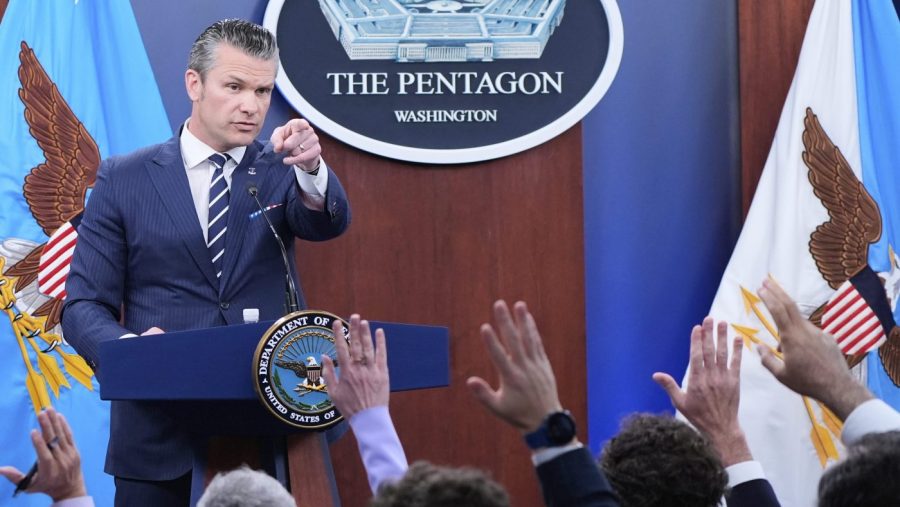Politics
Pentagon Tightens News Access, Press Faces New Challenges

The U.S. Department of Defense has implemented new restrictions on media access within the Pentagon, a move that has raised concerns among journalists and press freedom advocates. According to statements made by Pete Hegseth, a prominent media personality, the government will no longer assist journalists in gathering news, emphasizing that the press must operate independently without government support.
These changes were announced in November 2023, coinciding with ongoing debates about the role of the media in national security and the transparency of government operations. Hegseth’s remarks highlight a significant shift in the relationship between the press and the military, which traditionally has provided some level of cooperation to facilitate reporting.
Implications for Journalists
The new policy means that journalists will need to rely solely on their own resources and investigative skills to gather information about military operations and policies. This could hinder the ability to report comprehensively on issues that affect national security and public interest, as access to key officials and information sources becomes more limited.
Press freedom organizations have expressed alarm over the potential impact of these restrictions. They argue that limiting access to information not only undermines the work of journalists but also poses a threat to public accountability. The Committee to Protect Journalists issued a statement condemning the policy, underscoring that the media plays a crucial role in ensuring government transparency.
Public Response and Future Actions
The announcement has sparked a broader discussion about the importance of press freedom in a democratic society. Many advocates are calling for a reevaluation of the Pentagon’s approach to media relations, urging the government to foster an environment that supports robust journalism rather than stifling it.
As journalists adapt to these new conditions, the public may face a future where access to vital information is constrained. The implications of this policy could resonate for years, impacting not only media organizations but also the citizens they serve. By limiting the press’s ability to report effectively, the government risks reducing public engagement and awareness on critical issues.
In conclusion, the Pentagon’s decision to impose stricter limitations on media access represents a significant moment for press freedom in the United States. As journalists navigate this new terrain, the essential role of an independent press in a democratic society will become even more challenging. The consequences of these changes will likely unfold in the coming months, with ongoing scrutiny from both the media and the public.
-

 Science2 months ago
Science2 months agoInventor Achieves Breakthrough with 2 Billion FPS Laser Video
-

 Health2 months ago
Health2 months agoCommunity Unites for 7th Annual Into the Light Walk for Mental Health
-

 Top Stories2 months ago
Top Stories2 months agoCharlie Sheen’s New Romance: ‘Glowing’ with Younger Partner
-

 Entertainment2 months ago
Entertainment2 months agoDua Lipa Aces GCSE Spanish, Sparks Super Bowl Buzz with Fans
-

 Health2 months ago
Health2 months agoCurium Group, PeptiDream, and PDRadiopharma Launch Key Cancer Trial
-

 Top Stories2 months ago
Top Stories2 months agoFormer Mozilla CMO Launches AI-Driven Cannabis Cocktail Brand Fast
-

 Entertainment2 months ago
Entertainment2 months agoMother Fights to Reunite with Children After Kidnapping in New Drama
-

 World2 months ago
World2 months agoIsrael Reopens Rafah Crossing After Hostage Remains Returned
-

 Business2 months ago
Business2 months agoTyler Technologies Set to Reveal Q3 Earnings on October 22
-

 World2 months ago
World2 months agoR&B Icon D’Angelo Dies at 51, Leaving Lasting Legacy
-

 Health2 months ago
Health2 months agoNorth Carolina’s Biotech Boom: Billions in New Investments
-

 Entertainment2 months ago
Entertainment2 months agoRed Sox’s Bregman to Become Free Agent; Tigers Commit to Skubal








